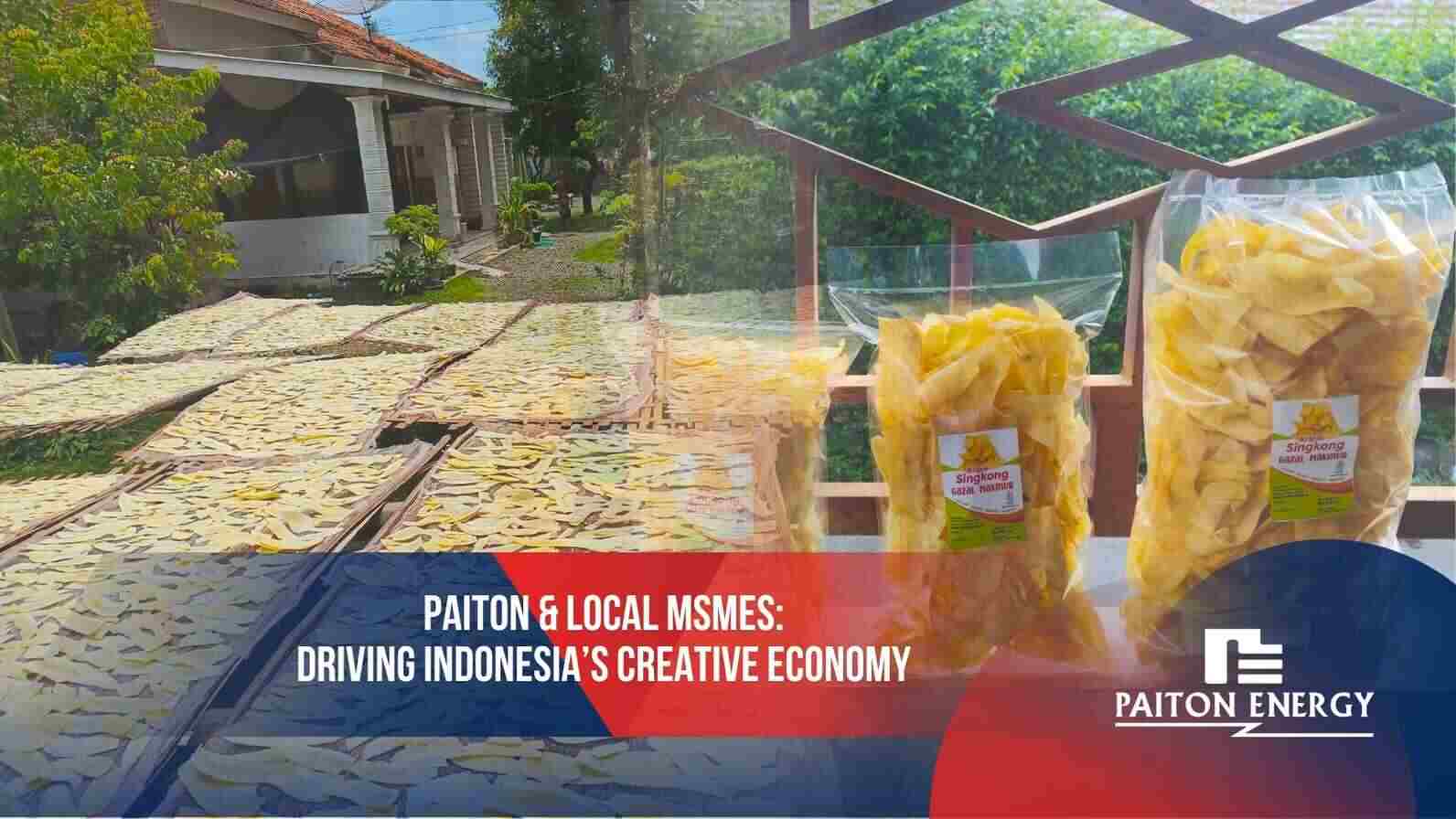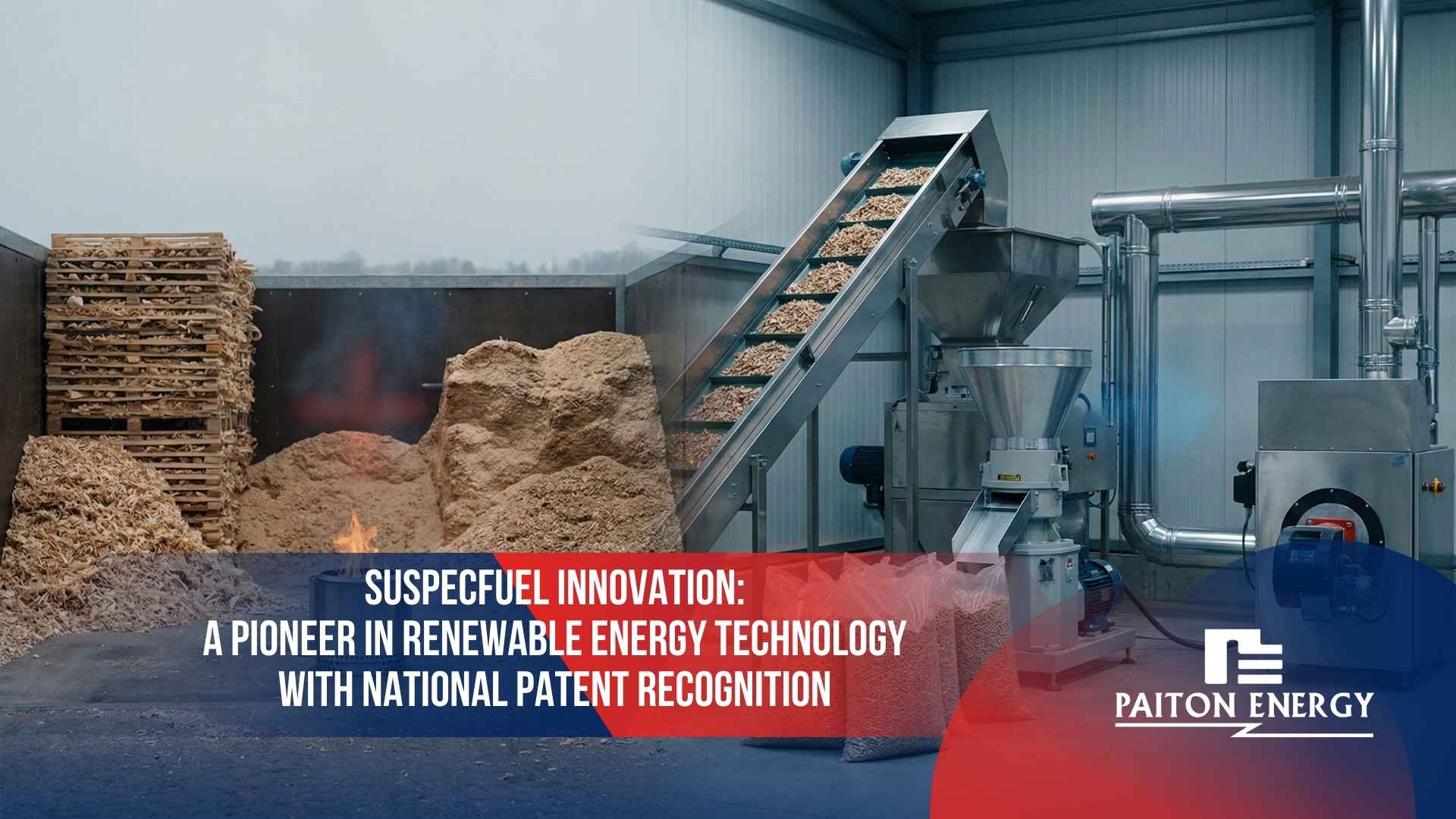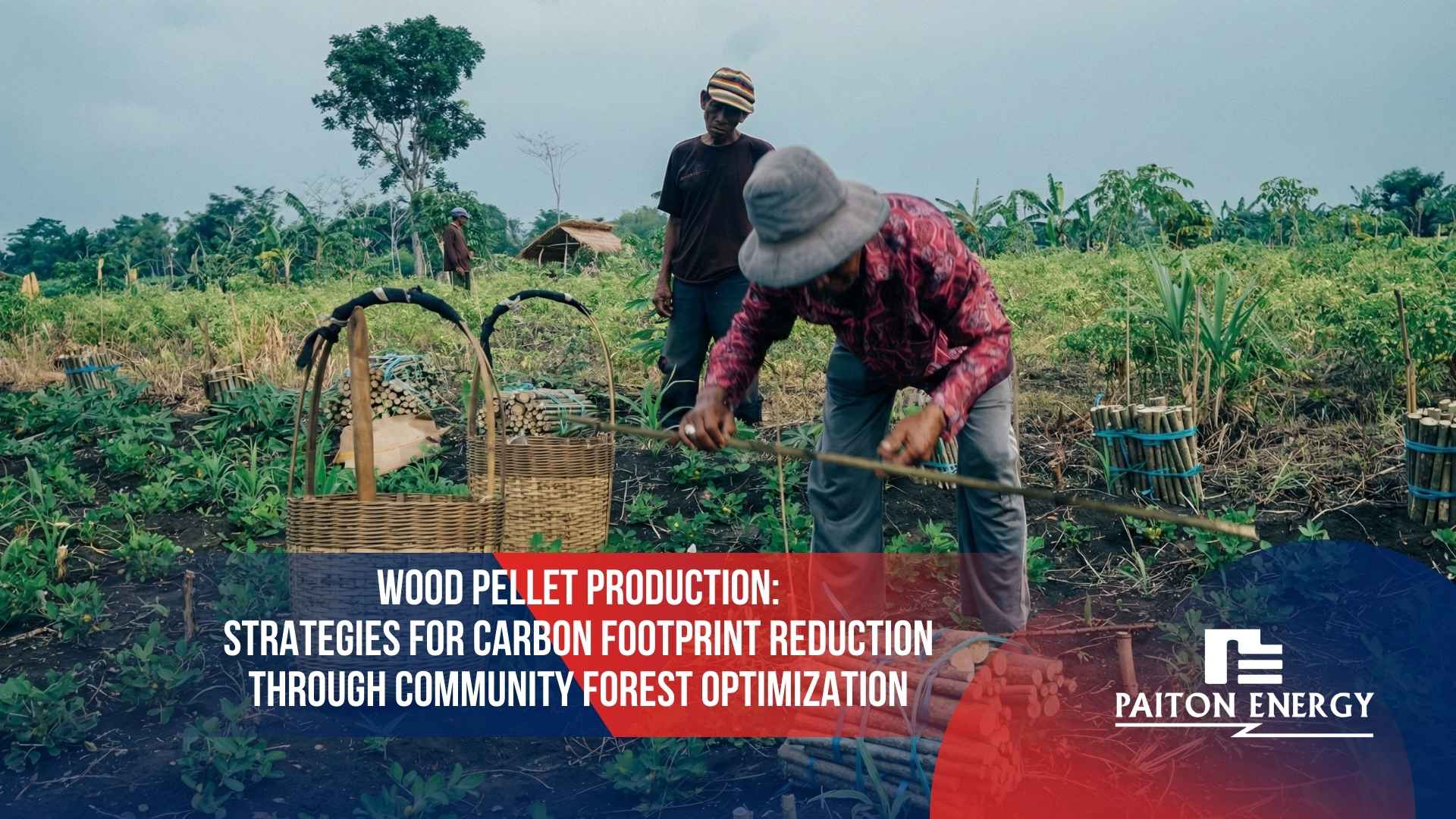In the face of challenges to inclusive economic growth in Indonesia, the role of micro and small enterprises (MSMEs) has become increasingly vital. One of the key reasons for developing the creative economy in Indonesia lies in the empowerment of local MSMEs, especially those that harness regional potential.
In Probolinggo Regency, East Java, PT Paiton Energy and PT POMI have demonstrated that community-based MSME development programs can be powerful engines for national economic progress.
Since 2014, the two companies have been running an MSME development initiative focused on household-scale food processing, empowering women and local communities to generate sustainable economic value.
Grassroots Microeconomic Empowerment
The social programs initiated by PT Paiton Energy and PT POMI go beyond one-time assistance. They focus on enhancing the skills, productivity, and scalability of micro-enterprises in the vicinity of the companies’ operational areas. These efforts address fundamental needs in rural communities such as employment opportunities, additional income, and economic self-reliance.
Training sessions are provided to housewives and local entrepreneurs to help them manage their businesses professionally. Participants are gradually and systematically trained in areas such as production analysis, packaging, PIRT (home industry permit) licensing, and marketing strategies.
This initiative serves as a real-world example of why developing the creative economy in Indonesia is essential: it creates locally grounded, practical solutions.
Success Stories: From Kitchen to Regional Markets
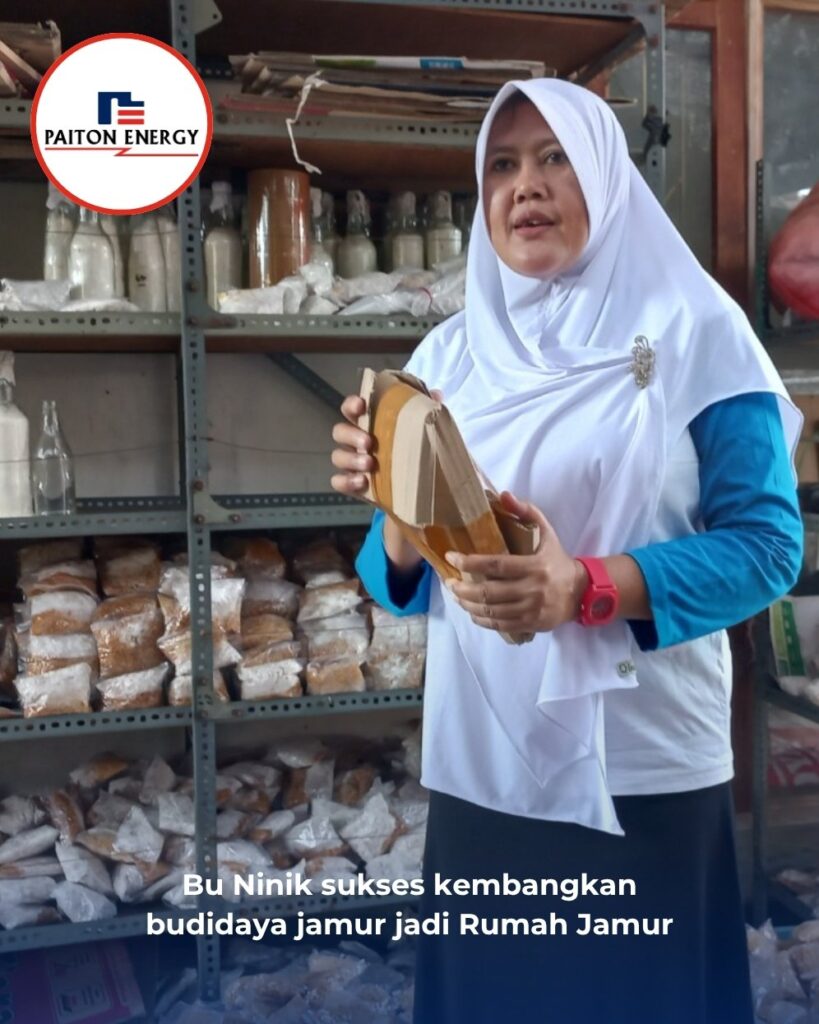
An inspiring example is the mushroom cultivation enterprise led by Mrs. Ninik, a member of the Mahkota Jamur group. Starting with basic training, she successfully managed the entire mushroom production chain—from baglog (growing media) preparation and seeding to processing mushrooms into popular crispy snacks.
Appreciated for her dedication and continuous mentoring, her business has grown significantly and now operates the “Rumah Jamur” (Mushroom House), which functions as both a production center and an educational hub.
This model has not only increased her family’s income but also created new job opportunities within her community. Her story underscores the importance of social investment in the microeconomic sector to support Indonesia’s broader economic growth.
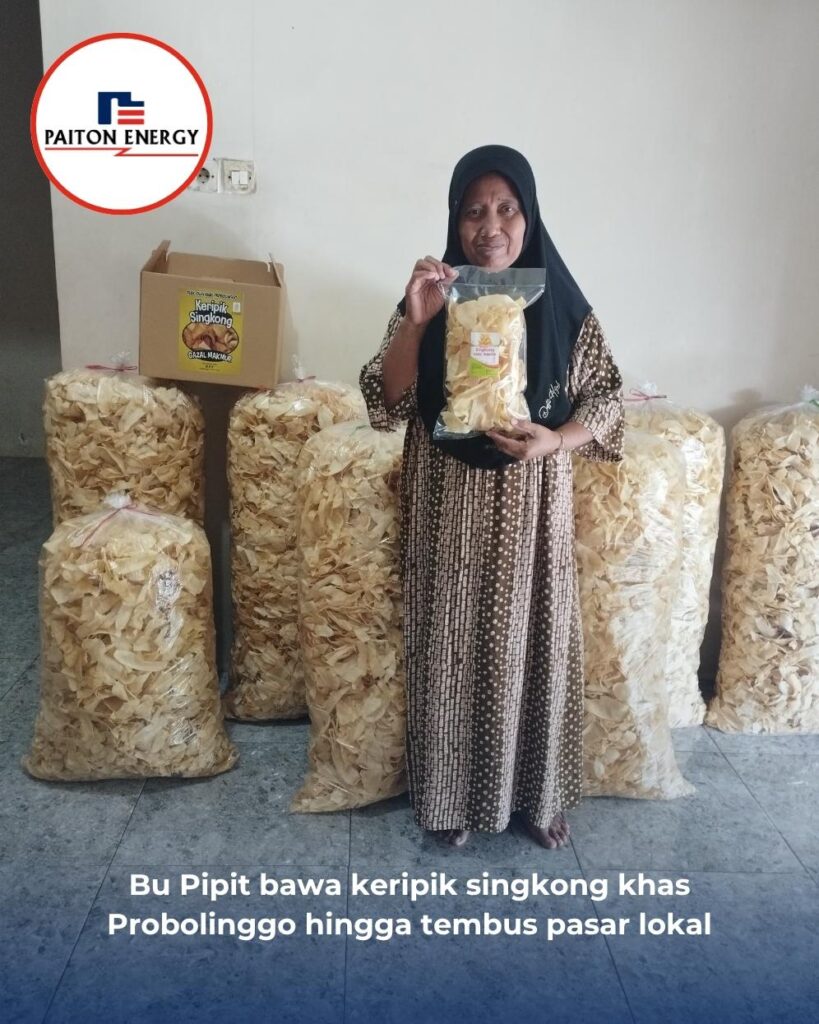
Similarly, Mrs. Pipit’s cassava chips enterprise, IKM Gazal Makmur, illustrates how local MSMEs can break into regional—and even international—markets.
After receiving training through PT Paiton Energy and PT POMI’s program, her products have become iconic Probolinggo souvenirs and are now available in markets such as Surabaya, Malang, and Kalimantan. Her chips were even considered for export to Thailand.
This is a clear demonstration of how the creative economy—rooted in local potential—can open doors to global opportunities.
The Creative Economy as a Pillar of Indonesia’s Growth
The creative economy has become a crucial component of Indonesia’s national development strategy. It not only produces high-value products but also empowers communities to transform everyday skills into innovative solutions.
PT Paiton Energy and PT POMI’s programs prove that when MSMEs are given access to training, mentorship, and market networks, they can grow significantly.
Moreover, this socially driven approach supports the goal of equitable economic distribution. Once known primarily as an agrarian region, Probolinggo now boasts competitive MSME clusters.
This strengthens the argument for developing the creative economy in Indonesia—to reinforce the economic structure from the grassroots and reduce inter-regional disparities.
Sustainable Strategies and Long-Term Impact
The development programs led by PT Paiton Energy and PT POMI do not stop at the initial training stage. Through a tiered strategy that includes empowerment, replication, and scaling up, successful MSMEs are encouraged to become inspirational models for new entrepreneurs.
Additionally, the “Support and Buy Local Products” campaign has been launched to foster consumer loyalty toward regional goods while strengthening national branding for MSMEs.
As a result, the program has generated not only economic impact but also social and cultural benefits. Communities have become more confident, independent, and productive. They are no longer just economic actors but agents of change within their communities.
This reinforces Indonesia’s economic model, one that is based on broad public participation—not solely reliant on large-scale industry. Such transformation answers the question of why the creative economy is essential to build in Indonesia: it creates a more resilient and inclusive economic ecosystem.
Local MSMEs as the Future of the National Economy
What PT Paiton Energy and PT POMI have accomplished reflects a social strategy aligned with national priorities. By facilitating the growth of local MSMEs, they are not only fulfilling their corporate social responsibility but also strengthening Indonesia’s economic foundation from the bottom up.
Through training, mentorship, and expanded market access, they are addressing key challenges in microeconomic development—namely, limited knowledge and networks.
Ultimately, from small home kitchens in Probolinggo, a new hope for Indonesia’s creative economy has emerged.
This is precisely why building the creative economy in Indonesia matters—it elevates local potential into a force with global reach.

